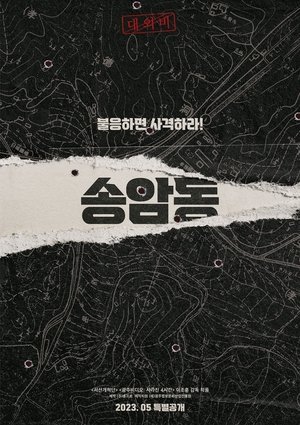

May Story(2010)
The South Korean city of Gwangju, will commemorate the May 18th 1980 uprising in style. They will stage a grand re-enactment of the scenes of the May uprising 25 years earlier, when martial law troops killed civilians, including women and children.
Movie: May Story

순지
HomePage
Overview
The South Korean city of Gwangju, will commemorate the May 18th 1980 uprising in style. They will stage a grand re-enactment of the scenes of the May uprising 25 years earlier, when martial law troops killed civilians, including women and children.
Release Date
2010-01-01
Average
7
Rating:
3.5 startsTagline
Genres
Languages:
한국어/조선말Keywords
Recommendations Movies
 6.5
6.5The Workhorse and The Bigmouth(ja)
34-year-old Michiyo Mabuchi (Kumiko Aso) and 26-year-old Yoshimi Tendo (Shota Yasuda) meet at a screenwriting class. Michiyo Mabuchi, who is called "Basyauma", works hard to become a writer, but can't see a future for herself as a screenwriter. Meanwhile, Yoshimi Tendo is a bigmouth who never tries hard at anything. These two people fall in love.
 5.8
5.8Ava's Possessions(en)
Ava is recovering from demonic possession. With no memory of the past month, she must attend a Spirit Possessions Anonymous support group to figure out what happened. Ava's life was hijacked by a demon, now it's time to get it back.
 6.4
6.4Force of Nature: The Dry 2(en)
When five women take part in a corporate hiking retreat and only four come out on the other side, Federal Agents Aaron Falk and Carmen Cooper head deep into the Victorian mountain ranges to investigate in the hopes of finding their whistle-blowing informant, Alice Russell, alive.
 5.8
5.8Gray Matters(en)
Sam and Gray are such a well-matched pair that it is difficult to believe they are brother and sister rather than husband and wife. They both share a love of 1940s movies and dancing, and when they meet Charlie, they have something else in common: They both fall in love with her. Sam must deal with unexpected feelings of jealousy, while Gray struggles to come to terms with her sexual orientation.
 6.2
6.2Influencer(en)
While struggling on a solo backpacking trip in Thailand, social media influencer Madison meets CW, who travels with ease and shows her a more uninhibited way of living. But CW's interest in her takes a darker turn.
As(en)
Three years after the death of her beloved child, Elouise, Mara still feels her presence when she sits on the butterfly bedding in front of the jar with her ashes in it. Mara arranges a twelfth birthday party for Elouise, further alienating her from her husband, Richter, and remaining daughter, Hannah. Although Mara eventually vacates Elouise's room at the insistence of her husband, she does find a way to stay close to Elouise. Before long, however, Hannah discovers her mother's secret.
 7.0
7.0Here Today(en)
Veteran comedy writer Charlie Berns, who is slowly but surely losing his grip on reality, befriends a talented young New York street singer Emma Payge. Together, they form an unlikely yet hilarious and touching friendship that kicks the generation gap aside and redefines the meaning of love and trust.
 6.7
6.7Trailer Park Boys: Countdown to Liquor Day(en)
Ricky, Julian and Bubbles are about to get out of jail, and this time, Julian vows to go straight, even open a legit business. Soon the Boys will all be rich. At least that's what they've told the parole board. But when they arrive back at the park, they find it's not the same old Sunnyvale - and it's not the same old Jim Lahey, Trailer Park Supervisor.
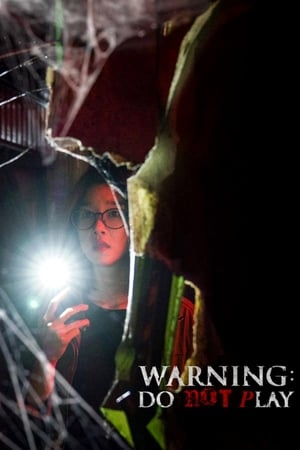 6.2
6.2Warning: Do Not Play(ko)
A struggling director makes a desperate bid to dig into the urban legend about a film shot by a ghost, at the risk of her own life.
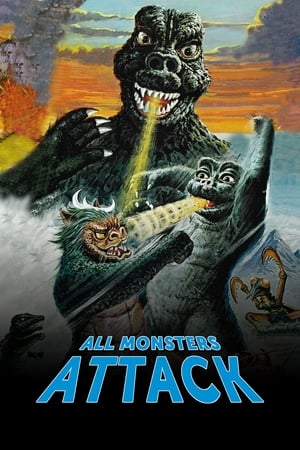 5.1
5.1All Monsters Attack(ja)
Ichiro Miki is a child living in the industrial district of Kawasaki, where his parents' constant struggle to make ends meet often leaves the schoolboy alone. Constantly teased by a bully nicknamed Gabara, his only friends are toy consultant Shinpei and fellow classmate Sachiko. Ichiro turns to escapist dreams of Monster Island where he befriends the equally bullied Minilla.
 5.1
5.1The Doll(id)
Anya and Daniel just moved to their new house in Bandung. Daniel brings home a doll from his workplace. Anya, who is a dollmaker, welcomes the doll happily to their house. They later learned that the doll belonged to a little girl named Uci, who died when she and her family were brutally murdered in a robbery. Strange things begin to happen.....
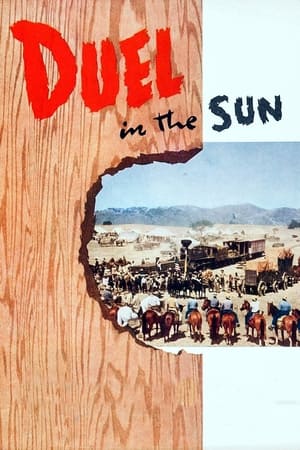 6.3
6.3Duel in the Sun(en)
Beautiful half-breed Pearl Chavez becomes the ward of her dead father's first love and finds herself torn between her sons, one good and the other bad.
 7.6
7.6Are We in Love?(ko)
A young woman with a miserable life receives a magical book that gives her the power to make every man she encounters fall for her.
 7.1
7.1A Certain Magical Index: The Miracle of Endymion(ja)
On the day Touma Kamijou and Index see Academy City's space elevator, Endymion in the distance, they meet a Level 0 girl with an amazing singing voice, Arisa Meigo. As the three enjoy their time together after school, magic-user Stiyl Magnus suddenly attacks them. His target: Arisa. Why would a girl from the science side be targeted by someone from the magic side, Touma wonders. In the chaos of Stiyl's attack, he tells Touma, Index and Arisa that she might cause a war between the magic side and the science side.
 6.4
6.4Hostage House(en)
A realtor and her daughter are taken hostage by armed robbers.
 4.6
4.6AA(ja)
"AA" is a documentary about Akira Aida (mostly known as Aquirax Aida), a japanese music critic who introduced free jazz, improvisation, and progressive rock to Japan. It's based on interviews with 12 critics and musicians who had connections with him. This is a documentary that considers the past, present and future of improvisation.
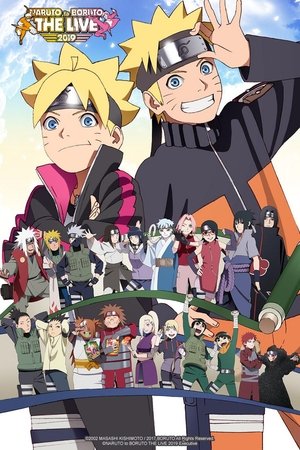 7.5
7.5Naruto to Boruto: The Live 2019(ja)
“NARUTO to BORUTO THE LIVE 2019”, a special event for the 20th anniversary of the first publication of “NARUTO” series in Weekly Shonen Jump!! Featuring live performances by artists performing the theme songs of both “NARUTO” and “BORUTO: NARUTO NEXT GENERATIONS”, anime cast members reading original story episodes, and more.
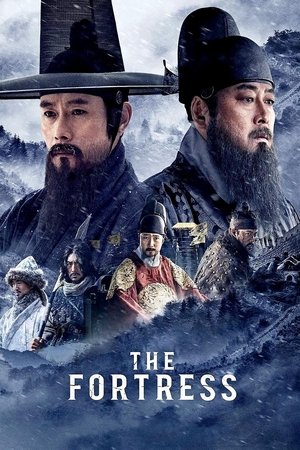 6.7
6.7The Fortress(ko)
Ancient Korea, 17th century. The powerful Khan of the Jurchen tribe of Manchuria, who fights the Ming dinasty to gain China, becomes the first ruler of the Qing dinasty and demands from King In-jo of Joseon to bow before him; but he refuses, being loyal to the Mings. On December 14th, 1636, the Qing horde invades Joseon, so King In-jo and his court shelter in the mountain fortress of Namhan and prepare to defend the kingdom.
Similar Movies
 8.1
8.1A Taxi Driver(ko)
May, 1980. Man-seob is a taxi driver in Seoul who lives from hand to mouth, raising his young daughter alone. One day, he hears that there is a foreigner who will pay big money for a drive down to Gwangju city. Not knowing that he’s a German journalist with a hidden agenda, Man-seob takes the job.
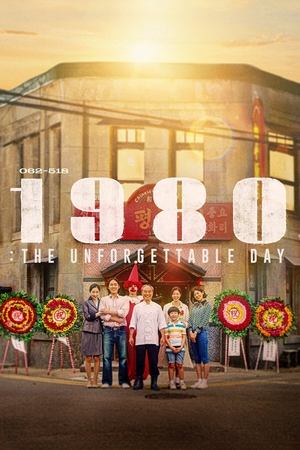 5.2
5.21980: The Unforgettable Day(ko)
There is HWAPYONG Restaurant with full of hopes of the family of three generations. Grandfather, the first-generation owner, and the first son, the second-generation owner, who lives as a fugitive after being branded as a communist and his wife and Cheol-soo’s mom who has to work hard by juggling work and family without complaint. The second son, Cheol-soo’s uncle, who sometimes acts like a child with an excuse of being the second son but loves Cheol-soo more than anyone and seriously cares about the restaurant. To the third generation, young Cheol-soo, family is the most precious. By the time when ‘Seoul Spring’ longing for democratization came to nothing due to ‘Retreat from Seoul Station’ in 1980, there were a series of peaceful protests in Gwangju, Jeolla Province. In warm May, a large dark cloud is looming over HWAPYONG Restaurant, the home and everything of this ordinary family of Cheol-soo, in the middle of Gwangju.
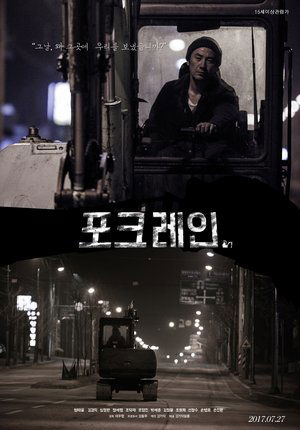 7.7
7.7Excavator(ko)
20 years after discharge from the army and now an excavator driver, a former paratrooper who had been mobilized to suppress the May 18th Democratic Uprising in Korea in 1980, happens to find a skull in the ground one day. Driving his excavator, he pays visits to his former superiors one by one and realizes they were all both assailants and victims of the times.
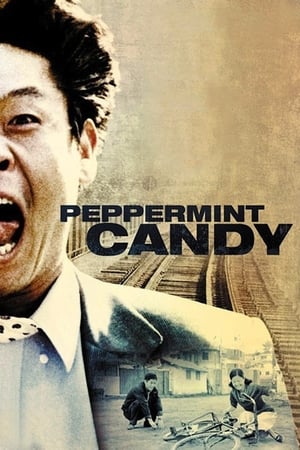 7.5
7.5Peppermint Candy(ko)
In the spring of 1999, a group of old friends gather to celebrate their 20 year reunion. Among the group is Yeong-ho, a cold, unhappy man, whose demeanor puts a damper on the festivities. The seriousness of Yeong-ho's depression becomes apparent when he climbs a railroad bridge and looks like he might jump. At this crucial moment, memories of seven crucial episodes from Yeong-ho's past flood his mind.
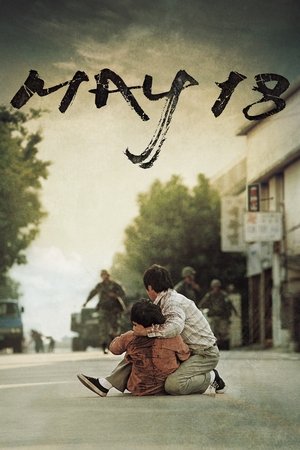 6.9
6.9May 18(ko)
The citizens of Gwangju lead a relatively peaceful life, until one day the military takes over the city, accusing the residents of conspiracy and claiming that they are communist sympathisers preparing a revolution against the current government. Seeing as the soldiers beat defenceless people, mainly students, to death, the citizens are in for retaliation and form a militia.
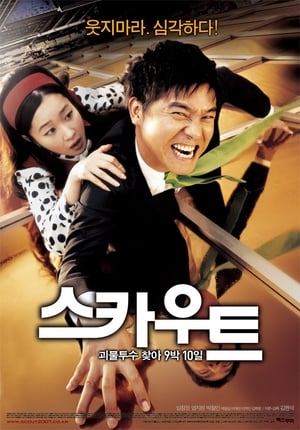 7.1
7.1Scout(ko)
1980, Kwang-ju is fired up about a genius pitcher, a senior in high school. Ho-chang takes confident strides across the field making his way by cutting through the sand dust. He’s a university scouter on a mission. His task is to scout the genius pitcher, SUN Dong-yeul, a master of baseball who may be scouted to a rival university. But he is no where to be seen. But Ho-chang is determined to not let down his reputation as a successful scouter, and his scouting mission of 10 days begin! An original story of a scouter on a 10 day mission full of undisclosed history will now unfold!
 7.0
7.0A Petal(ko)
A young girl is caught up in the 1980 Gwangju massacre, where Korean soldiers killed hundreds, if not thousands, of protesters who opposed the country's takeover by the military the year before. Flashbacks show the girl seeing her mother shot to death in the massacre. The film spurred the Korean public to demand the truth behind the incident, and their government eventually opened previously classified files on the massacre.
 3.5
3.5Oh! Dreamland(ko)
After the Gwangju Democratization Movement is terminated by brute force, Jong Soo runs from the authorities and goes to Dongducheon in search of Tae Ho, an older neighbor from his hometown. He is a student at Jeonnam University and a night school teacher who is on the run because of his involvement in the Gwangju Movement.
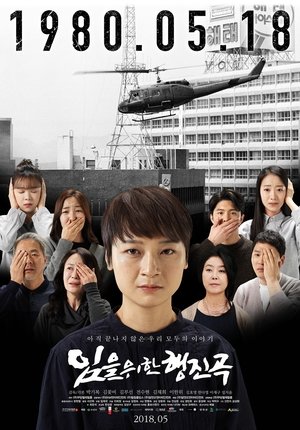 4.0
4.0The March for the Lost(ko)
This is the story of a father who died mysteriously in May of 1980, a mother who lives in the shadows with a bullet in her head and not being able to forget May 18th and their daughter, and the nation's greatest comedian, Hee-soo.
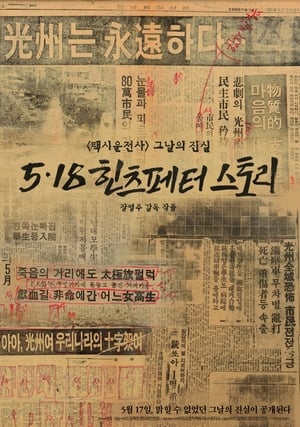 8.0
8.0The Hinzpeter Story(ko)
In May of 1980, the city is locked down and phone lines are dead because of protests and struggles in demand of democracy. Just when Gwangju was being ignored by the media, Jurgen Hinzpeter, a reporter from Germany, sneaks in despite the danger!
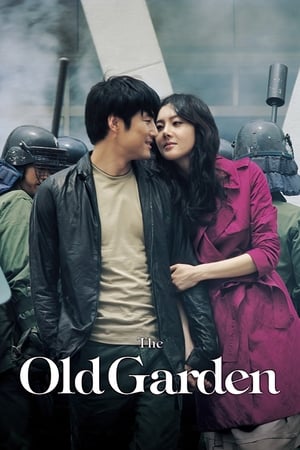 6.4
6.4The Old Garden(ko)
Activist Hyun-woo is released from prison after a 17-year stint. Journeying back to the village where he spent some time as a fugitive he recalls the time spent with Yoon-hee, a woman who gave him shelter and companionship.
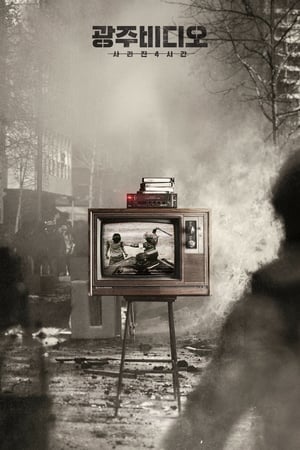 5.5
5.5Gwangju Video: The Missing(ko)
There are people whose lives have been shaken by the 'Gwangju Video'. On May of 1980, the course of their lives changed in front of a huge wave of truth in Gwangju. The people who made and spread the 'Gwangju Video' are also the people who had their bodies on the waves. The hidden stories of these people, the 40th anniversary of the Gwangju Uprising, and the pursuit to trace the missing 4 hours of mass shooting will be revealed for the first time.
 6.9
6.926 Years(ko)
26 years ago, state troops were ordered to open fire on civilians in the city of Gwangju who were demonstrating as apart of a democratic movement. Thousands of civilians were killed. Now, a shooter from the national team, a gang member, a policeman, CEO from a large company and director of a private security outfit get involved in a plan to convict the person responsible for the massacre.
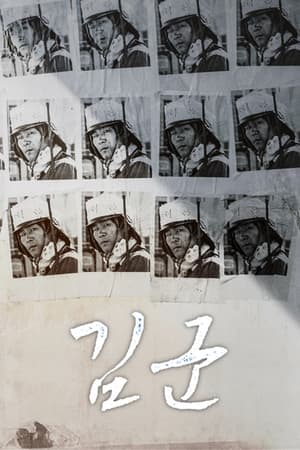 8.0
8.0Kim-Gun(ko)
KIM-GUN searches for the whereabouts of a young man whose identity has sparked a national controversy over the 1980 May 18 Gwangju Uprising. Starting with the vague memories of those who had crossed paths with him during that time, the film tracks down those who participated in the Uprising as “Citizen Soldiers.” It also traces KIM’s final steps, based on photographic clues found in the firearms he carried and the “Surveillance Truck No. 10” in which he rode. By identifying KIM-GUN, we believe that we can find valuable leads to resolving the ongoing controversy over May 18. Why did a nameless young man join the Uprising? Why did he take up arms? Where has he gone afterwards? It is the answers to these questions that the film seeks.
 0.0
0.0Good Light, Good Air(ko)
The title Good Light, Good Air is oddly paradoxical. Keenly working at the point where his artistic identity and persistent attention on modern Korean history meet, director Im in this film focused on where the history of oppression and struggle intersect between Gwangju and Buenos Aires. In both cities, a great number of people who fought against the dictatorship were slaughtered and disappeared. The people of both societies still live with that trauma. When the testimonies of the victims of the two cities cross over, the film gives us chills as the eerie history of the two is very similar. Through Good Light, Good Air, director Im asks us how we will remember the past from where we stand right now.
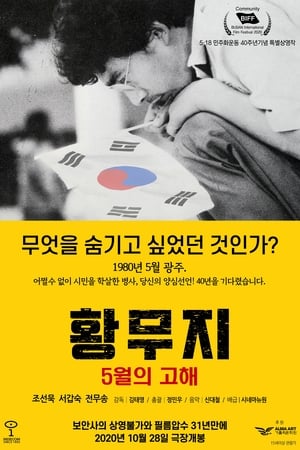 8.0
8.0The Confessions of May in the Wilderness(ko)
The movie is a compilation of the movie "Wilderness" in which a member of the airborne unit who killed a girl during the Gwangju Democratization Movement burned himself to death with remorse and "Mr. Kant's Presentation", the story of a man who wanders around as a result of torture after participating as a civilian army.
 6.0
6.0The Song of Resurrection(ko)
Cheol-gi who dreams of a society that embraces justice begins classes at a night school. There he learns about political and social contradictions and the realities the people face. While doing research on factory conditions with his classmates Tae-il, Min-sook and laborers Hyun-sil and Bong-joon, Cheol-gi learns about the Revitalizing Reforms system and the improper practices in emergency measures. After the military revolution, during the election for a general student body in a move towards democracy, Cheol-gi unwittingly becomes a man on the run when emergency martial law is implemented in response by the government. Cheol-gi blames himself when hears about the deaths of Tae-il and Min-sook during the Gwang-ju Uprising from Hyun-sil and Bong-joon. Just when he and Hyun-sil try to start a new life together, Cheol-gi is arrested and put in jail. Inside the prison, he starts another move towards prison democracy.
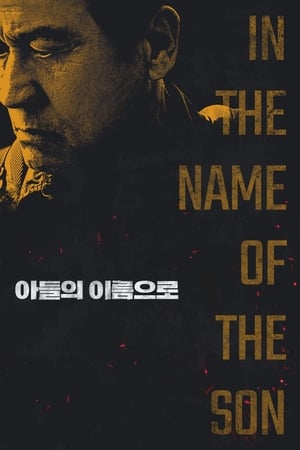 4.7
4.7In the Name of the Son(ko)
Chae-geun is a driver for hire with manic depression. He often talks to his son who is studying in the States and tells him he would keep his promise. He does a favor by acting as a temporary fiancé of a single woman named Jin-hee, who works as a waitress at a restaurant he frequents. Her father, who was a victim of the Gwangju Uprising in 1980, shows him a gun he stashed away 39 years ago and asks Chae-geun to help him exact revenge on those who were responsible for the May 18 incident.
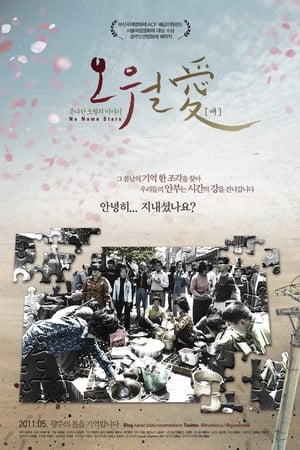 0.0
0.0No Name Stars(ko)
This year is the 30th anniversary of the Gwangju Democratization Movement. Though the country commemorates the event as the official historical records, it does not include any 'real' accounts of the people who experienced it firsthand. The students who were part of the movement; the female vendors who made rice balls for the students; the female high school students cooked at the government building; now, past their middle age, they live as ordinary citizens in Gwangju city. How is the event remembered by these people?


